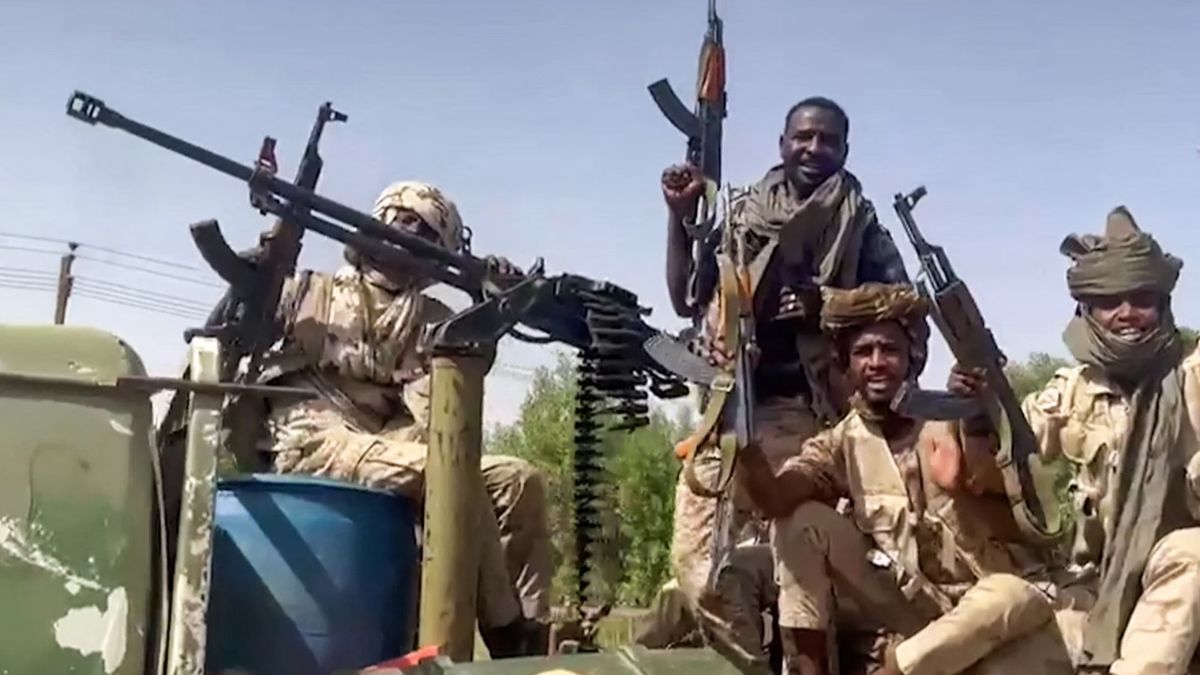In a potentially decisive moment in the Sudanese civil war, the paramilitary group RSF on Sunday claimed to have captured the city of El-Fasher, the last major holdout of the Sudanese military in the country’s western Darfur region.
With the capture of El-Fasher, the RSF would cement its control over Darfur and effectively split Sudan into eastern and western halves.
The RSF announced the capture of El-Fasher just hours after claiming to have seized the Sudanese army’s 6th Division Headquarters in the city — the last military base in the region that had not yet been overrun.
The Sudanese civil war began in 2023 following the collapse of an uneasy power-sharing arrangement between the country’s military, led by General Abdel Fattah al-Burhan, and the Rapid Support Forces (RSF), led by Mohamed Hamdan Dagalo, better known as Hemedti. The RSF is widely believed to have the support of United Arab Emirates (UAE) in the conflict.
ALSO READ: How civil wars in Sudan and South Sudan jeopardise Africa’s security
The United Nations (UN) has described the Sudanese civil war as the world’s worst humanitarian crisis. According to estimates, up to 150,000 people have been killed, hundreds of thousands injured, and 14 million displaced.
Around 24 million are considered to be in acute hunger and 600,000 are facing famine. The city of El-Fasher, where approximately 260,000 people are still believed to be living, is also gripped by famine , having been under RSF siege since April 2024.
RSF’s victory triggers fears of ethnic cleansing
There have long been fears of massacres and ethnic cleansin g if Darfur were to fall into the hands of the RSF and its allied Arab militias.
In the ongoing civil war, RSF and its allies have already killed more than 17,000 people from non-Arab groups in Darfur in a series of massacres. In one such mass slaughter in El-Geneina, the UN reported that RSF and its allies killed up to 15,000 people.
Impact Shorts
More ShortsPreviously, between 2003 and 2005, the RSF and allied militias —acting on the orders of Sudan’s former dictator Omar al-Bashir— waged a genocidal campaign in Darfur, killing around 300,000 people from non-Arab communities including the Fur, Masalit, and Zaghawa. The campaign involved mass killings, mass rapes, the destruction of entire villages, and scorched-earth tactics.
There are growing fears that a similar campaign could now be launched again. In addition to massacres, the RSF and its allies have been widely accused of sexual violence against women in the ongoing civil war, including rape, gang rape, forced marriages, and sexual slavery.
Following RSF’s claims of capturing El-Fasher, The New York Times reported several aid workers as saying that thousands of civilians were fleeing the city. The paper also cited video footage circulating online showing a long column of people leaving as RSF soldiers drove past.
There are also fears of retribution killings as the RSF has circulated a list of Sudanese army officers it seeks to capture in El-Fasher, according to The Times.
With El-Fasher’s fall, the RSF has effectively taken control of the mineral-rich Darfur region, splitting Sudan into two: the paramilitaries and allied militias now control the western and southwestern regions while the Sudanese military retains control of the east and the capital city of Khartoum.
Darfur is home to several gold mines, which have long been under RSF control and serve as a key source of revenue for the group. The United Arab Emirates (UAE) is widely believed to be invested in these mines and other mineral resources in the region. Previously, the RSF is believed to have supported the UAE’s campaign in Yemen against Iran-backed Houthis, as part of a broader alliance between the two.
)